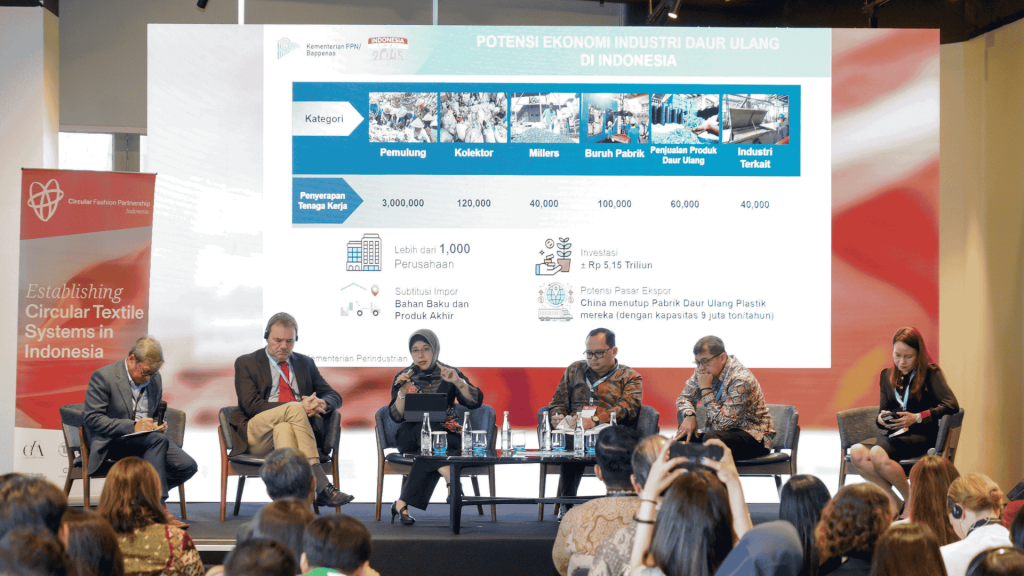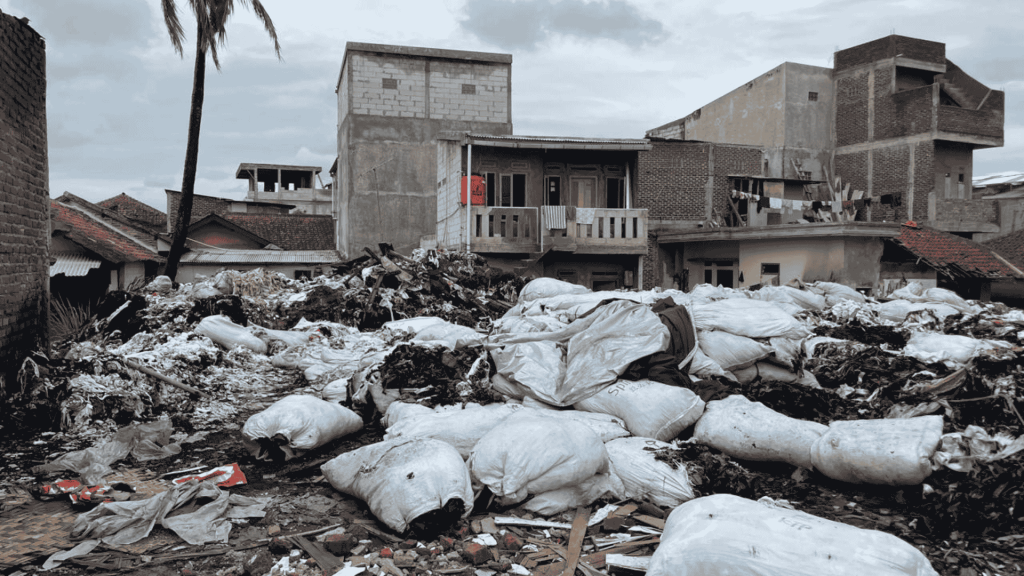The fashion and textile industry has long been one of Indonesia’s economic cornerstones, providing millions of jobs and contributing significantly to national growth. But this legacy comes with a cost: high levels of waste, resource consumption, and environmental impact.
At the recent Circular Fashion Forum, industry leaders, policymakers, and innovators gathered to explore how Indonesia can transition towards a circular and sustainable textile economy — one where resources are used more efficiently, waste is minimized, and value is retained in the system for as long as possible.

Why Circularity in Textiles Is a National Priority
With its long history and economic significance, the textile sector has been identified as a priority sector for circular economy implementation in Indonesia’s national roadmap. Circular transformation is not just an environmental necessity — it’s a competitive advantage.
By adopting circular practices, Indonesia can:
Reduce the industry’s environmental footprint.
Improve resource efficiency and reduce dependency on virgin materials.
Strengthen global competitiveness in an era where sustainability is a market expectation.
The Current Landscape: Where Textile Waste Goes
Today, most textile waste in Indonesia is handled by informal sector enterprises, which typically downcycle materials into non-textile products such as:
Cleaning rags
Soundproofing materials
Stuffing for dolls, pillows, and furniture
Building insulation
Other low-value mechanical recycling outputs
While this avoids some landfill waste, it doesn’t fully capture textiles’ potential as a feedstock for new fabric and garments.
Unfortunately, many challenges persist:
Unsorted and contaminated waste often ends up in landfills or is burned.
Limited chemical recycling facilities mean blended fibers and mixed materials can’t be processed optimally.
Regulatory gaps hinder systematic waste collection and quality control for recycling.
Weak policy on waste imports affects access to high-quality feedstock for recycling investors.
Educational gaps in textile and fashion schools mean sustainability and circularity are not yet core focuses, limiting research and innovation.
What Needs to Change: Investment and Policy Support
Speakers at the Forum emphasized the importance of a structured, large-scale pilot project, inspired by Bangladesh’s success in industrial textile recycling. This would serve as proof of concept for investors and policymakers.
Key enablers include:
Government facilitation in building a supportive ecosystem and policy framework, without directly running the business.
Improving regulatory clarity to attract investment.
Ensuring reliable feedstock supply chains and trained workforce capacity.
Circular Fashion Partnership: Indonesia – A Starting Point
Launched in October 2024, the Circular Fashion Partnership (CFP): Indonesia marks an important first step toward scaling circularity nationwide.
Over its two-year project period, CFP aims to:
Build an industrial-scale pilot project.
Advocate for supportive policy development.
Improve waste quality by enhancing industry capacity in waste management.
Establish a multi-stakeholder platform to ensure a lasting transition to circular fashion.
This collaborative model aligns closely with Indonesia’s development vision of becoming a labor-intensive, sustainable, and circular industry.
Circularity in fashion is not a single-actor mission — it requires collective action from manufacturers, brands, policymakers, educators, waste managers, and consumers. The transformation will not only reduce environmental impact but also create new green jobs and strengthen Indonesia’s position in the global sustainable fashion market.



